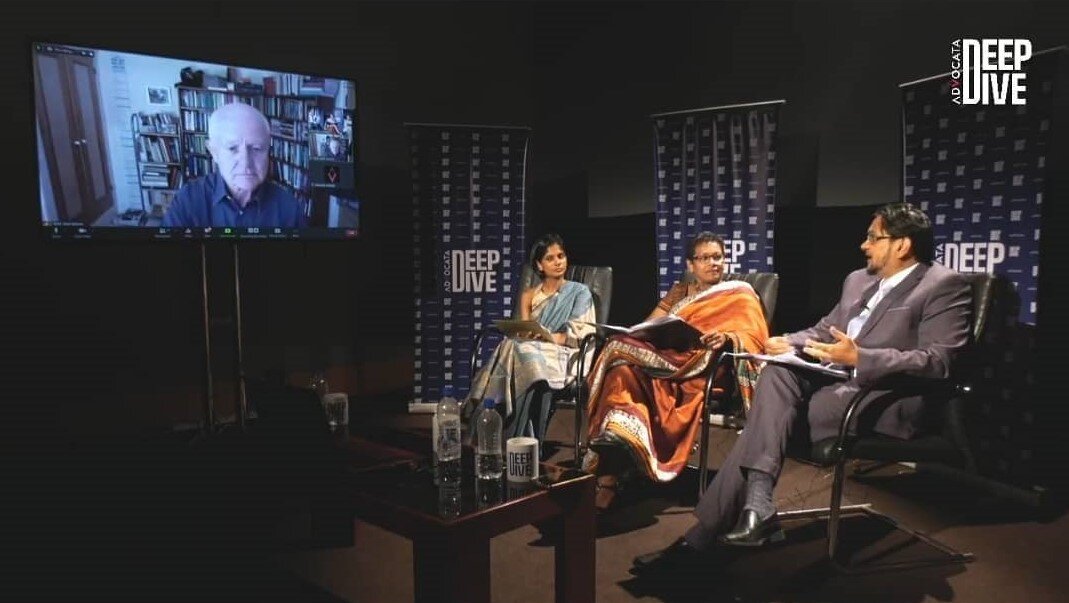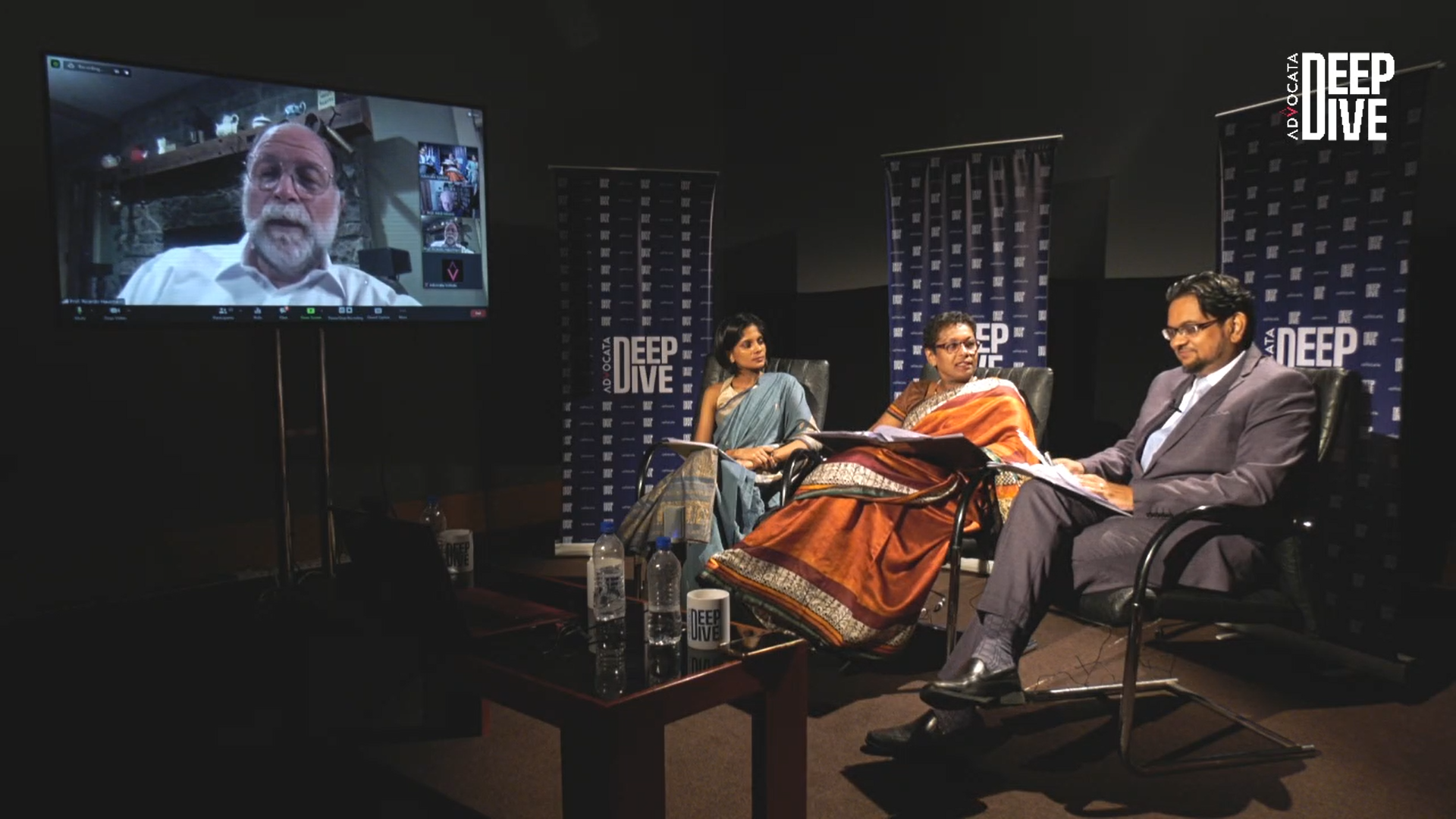Covered by Ceylon Today
“Post-independence Sri Lanka has continuously had a fiscal deficit, while it had a Primary Balance surplus only in 1954, 1955, 2017 and 2018,” stated Advocata Chairman Murtaza Jafferjee while speaking on Sri Lanka’s debt sustainability.
However, the primary balance situation reversed in 2019 due to the Easter Sunday tragedy, and a broad primary deficit is expected in 2020 due to COVID-19 pandemic, Jafferjee cautioned.
“Civil wars, insurgencies, populist election promises are some of the reasons for fiscal deficits to emerge. However, Sri Lanka’s high Primary deficit is due to low revenue in comparison to excessive spending. Twenty years ago, revenue formed 20% of GDP, which has been reduced to 13% currently. Relative to the rate of expansion of the economy, revenue did not keep up,” he noted.
He said, “Except for Bangladesh, all other countries in the region have higher revenue percentages to GDP than Sri Lanka. Meanwhile, except for India, regional countries like Vietnam, Malaysia, Bangladesh, Philippines, Indonesia, Thailand, Cambodia all have had lower fiscal deficits than us according to 2018 data.”
Jafferjee suggests fiscal consolidation as a solution to improve the government’s fiscal position and reduce debt to GDP. He suggested however that the government should implement this in a structured manner over a period of time. Size, pace, duration and the composition of fiscal adjustment should be done systematically as failure to do so could lead to economic disaster or political instability, explains Jafferjee.
“In a country such as ours asking people to pay higher taxes all of a sudden may lead to lost political capital. The degree of adjustment is highly dependent on economic and political circumstances. In the short term, fiscal consolidation may lead to lower GDP growth.
In periods like pandemic situations, higher fiscal consolidation could be disastrous. It would reduce aggregate demand, which in turn can lead to low tax revenue. “
Jafferjee further notes that the least distortionary tax measure could be a wealth tax, which Sri Lanka doesn’t currently possess. He noted that over the past decade our credit growth was higher than the money supply, and has also significantly outpaced nominal GDP growth, irrespective of whether it was a loose or contractionary economic policy.
“Credit drives the economy, fund’s investments and the economy. Credit growth hasn’t boosted economic growth or nominal GDP. This could be due to the investment in real estate, leading to a spike in land prices.”
The Chairman noted that the expansion of credit was evident for over a decade across multiple sectors including loans and leases, which could have been used to buy real estate. He claimed that there were no taxes on land, despite Sri Lanka’s direct taxes being low. “Indirect taxation accounts for 75% of total tax revenue, which is highly regressive, meaning tax is applied uniformly, imposing a higher burden on low-income earners than high-income earners.
As per Central Bank data, real estate prices in the Colombo District have increased over 170% in the last ten years and 95% in the last five. It’s time that policymakers think of collecting property taxes excluding lower value ones,” noted Jafferjee.




